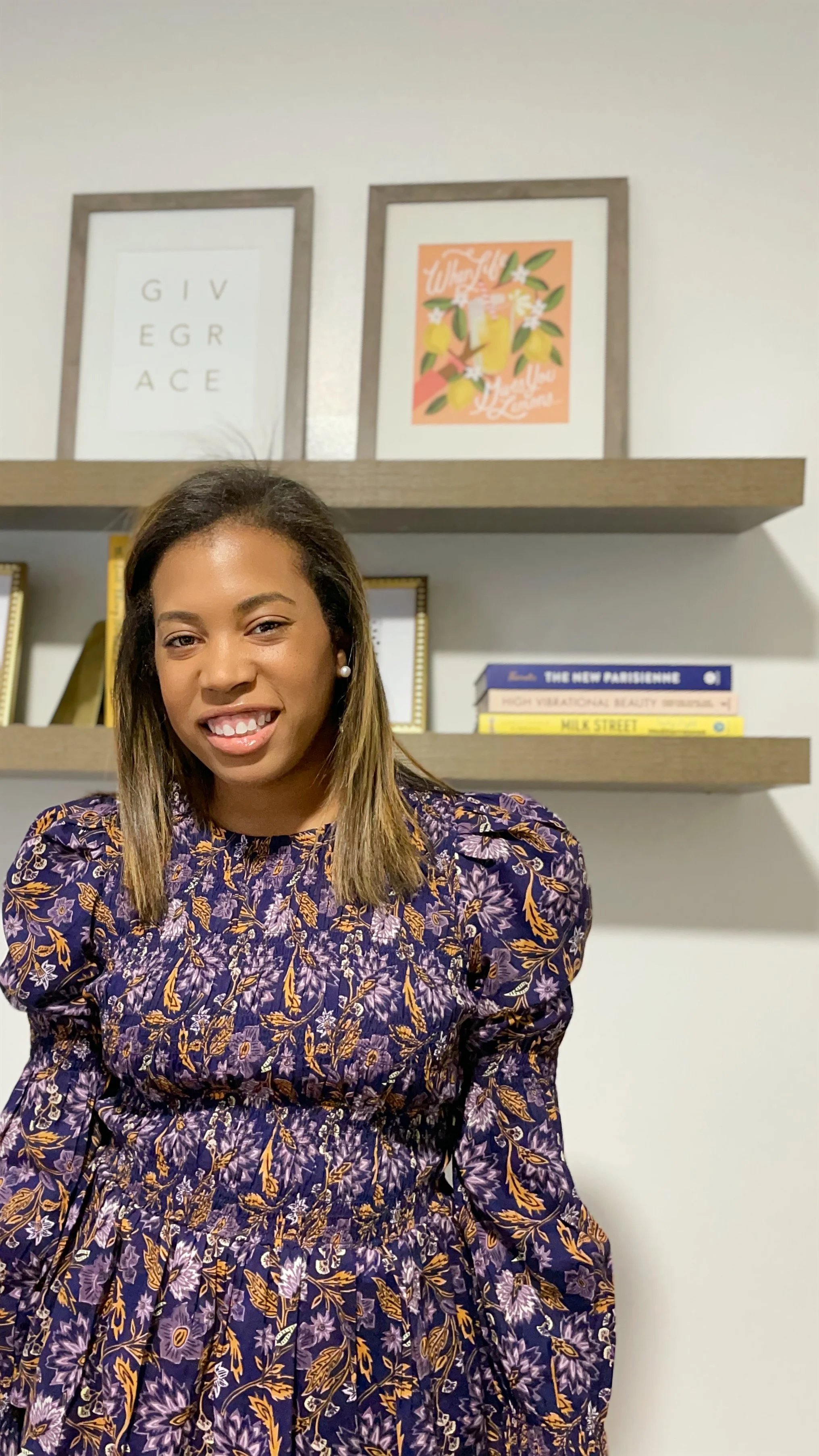My Crohn’s disease journey
I have Crohn’s disease.
Today marks the first day of Crohn’s and Colitis Awareness Week. And I thought this was a good time to tell you that I have Crohn’s disease. I went back and forth on whether I wanted to publish this blog post because it’s a vulnerable topic. I waited to tell you because I needed to process the news myself, get prepared to answer all the questions you may have, and tell the people closest to me first. My diagnosis journey has been a long seven-year journey. This blog post may trigger some emotions, so you may want to stop reading if you are sensitive to the topic.
Before I get into the details of sharing how I found out I have Crohn’s and how I’m feeling now, let’s discuss what Crohn’s disease is first.
What is Crohn’s disease?
Crohn’s disease is a lifelong chronic autoimmune illness that causes inflammation in the digestive tract. Basically, the inflammation is attacking my gut. It’s often referred to as Inflammatory Bowel Disease. What causes Crohn’s disease is still unknown. It’s an unpredictable one. One minute you feel great. The next minute, you’re rushing to find the nearest bathroom or bed to lay down. Symptoms include diarrhea, weight loss, fatigue, joint pain, nausea, bloody stools, fevers, constipation, bloating and/or stomach pain. Symptoms vary from person to person.
More than 1.6 million Americans are living with Crohn’s disease or Ulcerative Colitis. Crohn’s is one of those invisible illnesses that affect an individual’s daily life but on the outside looking in no one can tell. An individual often seems fine but they are managing daily challenges of their own. A person living with Crohn’s disease is diagnosed with a mild, moderate, or severe case. I have mild Crohn’s disease. Individuals with mild Crohn’s can have a good quality of life.
My Crohn’s disease diagnosis journey
2014-2016
Let’s start at 2014. If you’ve been a long-time reader of my blog, you’ll remember when I was in and out of the hospital in 2014 with stomach problems trying to figure out what was wrong. I had stomach problems for years throughout high school and college but just brushed it off as being nothing. This was a stressful period of my life filled with lots of life changes. I purchased my house in 2013. My boyfriend at the time and I had broken up in 2014. My roommate had moved out abruptly. All of this was going on while traveling for work every two to three weeks. My stomach was going on a rollercoaster ride at this point due to all of the stress.
In 2014, I remember having brunch with a friend when my heart started racing and suddenly I started burning up. I immediately drove myself to the hospital afterward because I knew something was wrong. While waiting in the ER, I started having chronic diarrhea that wouldn’t stop. So they admitted me to the hospital for observation. Thinking it was a severe case of gastritis I was unable to go home until my symptoms went away. A few days later, I was discharged. I was asked to follow up with my primary care doctor, who referred me to a gastroenterologist.
I met with a gastroenterologist who scheduled a colonoscopy to look further into it. During the colonoscopy, she saw inflammation in my small intestine and biopsied the area. She said the inflammation looked like Crohn’s but couldn’t diagnose it until the biopsy came back. She sent me home with a prescription for a steroid.
Before I could get to my scheduled post-operation appointment, things continued to go downhill.
I found myself flying home from a work trip sick in the San Antonio airport with the worse upset stomach and uncontrolled nausea. I finally made it back to Atlanta and went to the drugstore to get medicine to try to reduce the symptoms until I could see a doctor because I didn’t want to go back to the hospital. The following day, I still felt crappy, but I head to work anyway. While at work, I started to become pale in the face. At this point, things began to go downhill fast. My upset stomach quickly turned into bloody diarrhea. I rushed to my Gastroenterologist at the time, who started to run a bunch of tests. She sent me home, ordered me a prescription to help calm the stomach problems but told me if I continued to see the blood, I needed to go back to the emergency room ASAP. That evening I found myself back in the hospital, headed into a holiday weekend. If you’ve ever been in the hospital during a holiday weekend, it’s the absolute worst because nothing gets done. What would typically take a day to get answers from the medical team it takes three to four days. Finally, my stomach problems subsided and I was released.
I met with my GI doc at the time. At this point, I was at wit's end with being in and out of the hospital and not getting answers. The results came back from my colonoscopy. The biopsy didn’t give a conclusive result, but she thought it was Crohn's. That answer didn’t sit well with me. She had a horrible bedside manner which I have zero tolerance for.
I sought a second opinion from another GI doctor who is now my current physician. Under his care, I went in for another colonoscopy and another round of lab work. The colonoscopy at the time came back showing no sign of Crohn’s, but it did come back saying that I had C-Diff, which can mimic Crohn’s symptoms. I was treated for the C-diff, which took several months to recover from. My severe GI symptoms resided after I finished the round of meds. I was also diagnosed with being severely lactose intolerant and having Inflammatory Bowel Syndrome (IBS). IBS is different than IBD. IBS is a syndrome, not a disease. It can’t be seen in an exam or imaging. You can have both IBS and IBD.
2016-2019
I started being mindful of my gut health by following an anti-inflammatory diet, giving up alcohol, taking supplements and probiotics to rebuild my gut flora. I also met with a dietitian to get back to a healthy weight. During my hospital stays, I lost 30lbs and weighed 105 lbs. Unfortunately, food insecurity became a big problem after going through this journey. This is when I found my therapist, who helped me heal from the emotional trauma of all I had experienced.
For the past few years, I thought my gut was in a healthy state because I was pretty much symptom-free with no stomach problems. I maintained a healthy diet, exercised regularly, and kept my stress levels down. It wasn’t until 2019 when I started experiencing chronic constipation. I brushed it off as nothing and began taking supplements to treat it.
Present
Let’s skip to the current year because this was when things changed. I started having some new issues with my stomach where I was seeing blood again. It wasn’t like before, so I wasn’t alarmed. My primary care doctor recommended I see my Gastroenterologist again. After meeting with my gastroenterologist he scheduled another colonoscopy to see what was going on with my gut. He wanted to check to make sure I didn’t have polyps or anything cancerous causing constipation. At this point, I’m preparing for my fourth colonoscopy under the age of 36.
Colon cancer rates for individuals under 50 have skyrocketed and individuals over 50 are down. So it was important to check to make sure it wasn’t cancer. Colonoscopies are the gold standard for checking for any disease involving the digestive tract.
Good news!
The colonoscopy showed no polyps or cancer. The bad news is that the area where they saw the inflammation years ago in my small intestine is back again. So they ran a biopsy during the colonoscopy and it came back positive for Crohn’s. After the colonoscopy, I had additional tests done to confirm the inflammation wasn’t anywhere else in my digestive tract. Crohn’s is unique because it can appear in several different parts of your digestive tract. The other positive news is the reports show the inflammation is still only in my small intestine and the disease is very mild. The doctors said it’s rare for someone to go this long without multiple symptoms. I think keeping my stress levels at bay and maintaining a healthy lifestyle has helped. I’m currently on medication to treat the inflammation. The goal is to treat this inflammation, so I don’t have to be on a lifetime of medication.
What’s next for me?
I recently joined a functional medical practice where I’ll work with dietitian. This is just an addition to my wellness toolkit. It’s supplement to my current GI and primary care doctor. The goal is to figure out how to kick this inflammation to the wayside with these teams. I’m scheduled to have another colonoscopy in the spring to see if the inflammation is gone and if I’m in Crohn’s remission.
Why am I sharing this?
I’m sharing my story because I hope it helps someone else. Looking back, I always had stomach problems. I just self-treated my symptoms until it was all better. If you are constantly having issues with your digestion, request for your primary care doctor to refer you to a gastroenterologist to get checked out. Stop self-treating your symptoms with over-the-counter products. Immodium and Pepto Bismol should not be your best friend. Frequent upset stomachs are not normal. Listen to your body. Get checked out.
Also, talk to your family members. During this journey, I found out my mom and grandmother suffered from stomach issues for years. Unless you have those conversations, you’ll never know.
I also hope sharing my story can help other IBD warriors share theirs and remember to move forward with everyday life. Focus on the positives and not the negatives. Yes, there will be bad days. But I firmly believe that mindset is a huge contributor to quality of life. Crohn’s isn’t going to consume who I am. You won’t see me on social media being the poster child for Crohn’s or leading a conversation with “I have Crohn’s” because that’s not me. Of course, I will advocate for the community of sufferers, but this is probably one of the rare updates you’ll receive from me.
Please be kind and supportive with your comments. Always reach out to me if you have any questions via email or on my social
channels.

